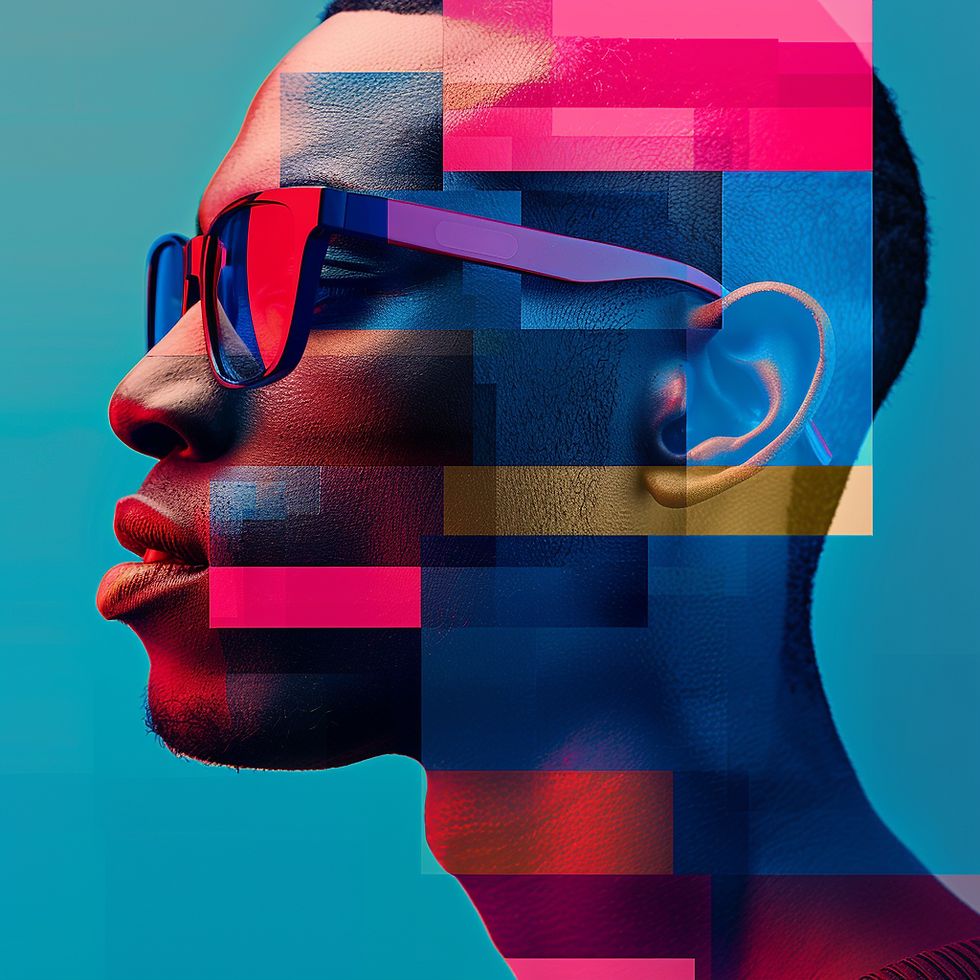Branding in the Age of AI: Case Studies and Examples
- Alicia Branham

- Aug 19, 2024
- 3 min read
Updated: Apr 22, 2025

In today's digital landscape, where technology evolves quickly, artificial intelligence (AI) redefines how brands create, manage, and deliver their identity. AI enables businesses to connect with consumers with more personalized, efficient, and innovative branding. In this blog post, we'll explore some compelling case studies and examples that explore the exciting ways brands harness the power of AI to elevate their branding strategies and connect with audiences like never before!
Netflix: Personalized Content Recommendations
Case Study: Netflix's success largely hinges on its AI-powered recommendation system. The streaming giant uses AI algorithms to analyze user behavior, preferences, and viewing history. Based on this data, Netflix suggests content that aligns with what individual users will enjoy.
Impact on Branding: Netflix's hyper-personalization keeps users engaged and reinforces the brand's image as a platform that knows its viewers intimately. Netflix has become synonymous with personalized entertainment by delivering tailored content to each user's taste.
Spotify: Personalized Playlists
Case Study: Spotify employs AI to curate personalized playlists for its users. Algorithms analyze listening habits, favorite genres, and moods to create playlists like "Discover Weekly" and "Release Radar."
Impact on Branding: Spotify presents itself as a brand that truly appreciates and celebrates the rich tapestry of musical tastes among its users. This personalization strengthens brand loyalty and keeps users engaged with the platform.
Coca-Cola: AI-Powered Content Creation
Case Study: Coca-Cola's vibrant "This Coke is a Fanta" campaign in Brazil took creativity to the next level by harnessing the power of AI to craft unique, personalized label designs. Each bottle became a canvas for expression, captivating fans with a delightful twist! Customers could scan a QR code, and an AI algorithm would transform the label into an artwork featuring their name.
Impact on Branding: This campaign highlighted Coca-Cola's innovative and customer-centric approach, reinforcing the brand's image as a fun and inclusive beverage company.
Starbucks: AI for Personalized Recommendations
Case Study: Starbucks utilizes AI to personalize the customer experience. The Starbucks app suggests drinks based on previous orders, allowing customers to reorder their favorites.
Impact on Branding: Starbucks portrays itself as a brand that understands its customers' tastes and values convenience. This enhances brand loyalty and encourages repeat business.
Sephora: Virtual Try-On
Case Study: Sephora's Virtual Artist uses AI and augmented reality (AR) to enable customers to try on makeup virtually. The app analyzes facial features and suggests products that match the user's skin tone and preferences.
Impact on Branding: Sephora stands out as a beauty brand that expertly blends technology with a passion for personalized experiences. With its innovative approach, shoppers can enjoy an interactive and convenient journey that transforms how they discover and enjoy beauty products.
McDonald's: AI-Powered Drive-Thru
Case Study: McDonald's acquired AI company Dynamic Yield to implement AI-driven menus at its drive-thrus. McDonald’s menus change in real time based on weather, time of day, and customer ordering patterns.
Impact on Branding: McDonald's portrays itself as a brand that uses AI to enhance customer experiences. It demonstrates adaptability and a commitment to providing what customers want.
Mercedes-Benz: AI-Enhanced Customer Support
Case Study: Mercedes-Benz's AI-powered virtual assistant, "Ask Mercedes," provides drivers with information and support. It can explain vehicle features, offer driving tips, and even help with technical issues.
Impact on Branding: Mercedes-Benz positions itself as a brand that produces high-quality vehicles and exceptional customer support through cutting-edge technology.
Prada: AI-Powered Virtual Assistant
Case Study: Prada introduced a virtual assistant named "Prada 24/7." Customers can chat with the AI to get product information, locate stores, and more.
Impact on Branding: Prada's virtual assistant adds a touch of luxury and sophistication to the brand's customer experience, reinforcing its image as a high-end fashion house.
AI, a Pivotal Tool for Competitive Brands
AI has become a pivotal tool for brands looking to stay competitive in the digital age. These case studies and examples demonstrate how AI can be harnessed to personalize customer experiences, streamline operations, and reinforce brand identities. In an era where consumers expect tailored interactions and seamless experiences, AI allows brands to meet these expectations and standards for customer engagement and loyalty. As technology continues to evolve, we can expect even more innovative uses of AI in branding to emerge, further reshaping the landscape of consumer engagement.
For more information or to talk to a Bran Marketing team member, contact us today at info@getbran.com.



Comments